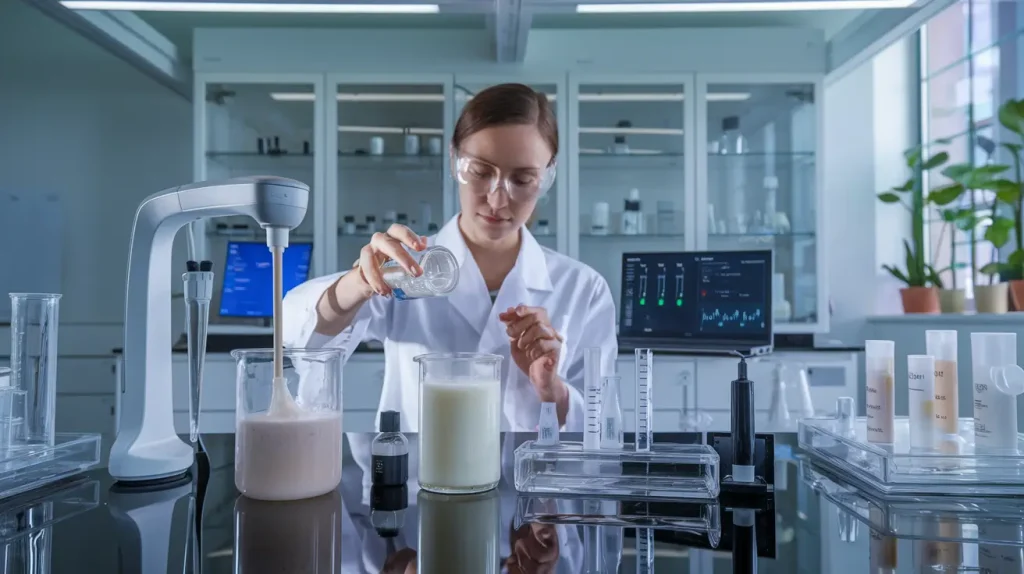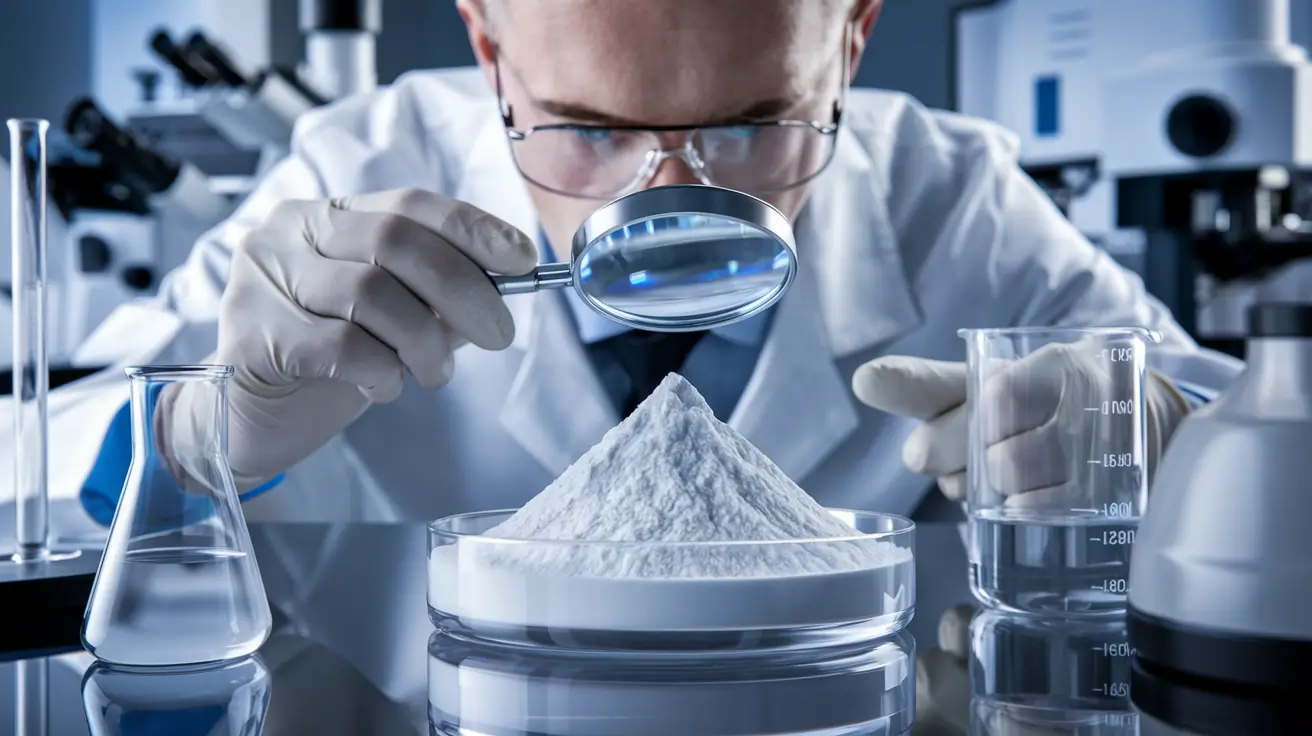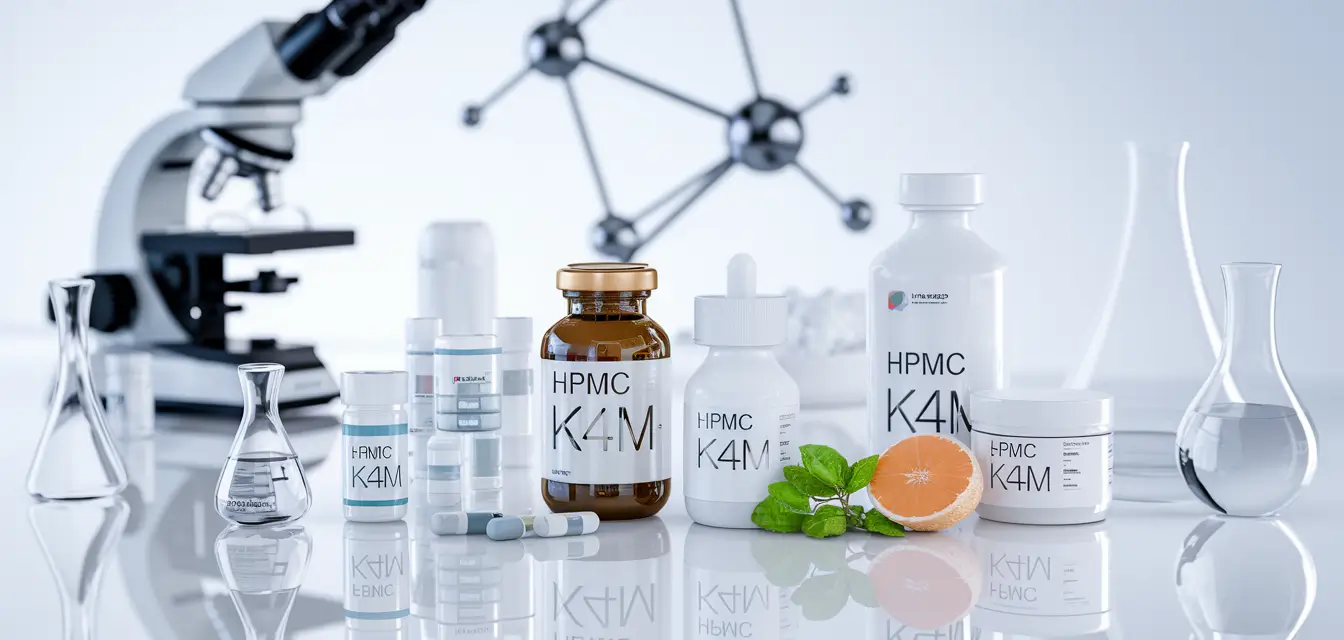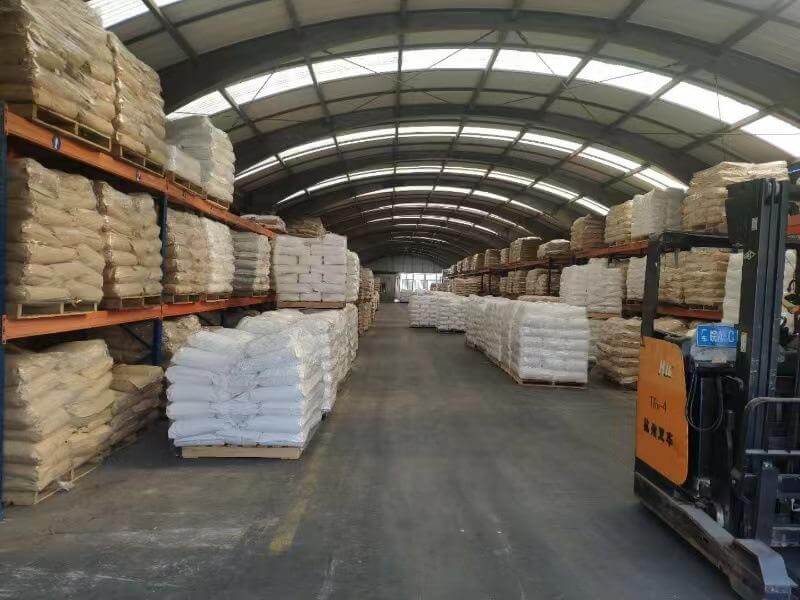Introduction: Unveiling the Role of HPMC Manufacturers
The Essential Role of HPMC Across Industries
Hydroxypropyl Methylcellulose (HPMC) serves as a versatile cornerstone for innovation across diverse sectors. In construction, it enhances the consistency and adhesion of mortars and adhesives. Within the pharmaceutical industry, it acts as a key excipient, ensuring precise control over active ingredient release. In food production, HPMC improves texture and stability, creating high-quality, consumer-pleasing products. From cosmetics to industrial applications, its adaptability and performance make HPMC a critical ingredient in countless formulations, empowering industries to meet ever-evolving demands.

What This Guide Offers
This guide dives into the pivotal role HPMC manufacturers play in supporting your business growth. You’ll discover how to evaluate manufacturers, ensure adherence to quality standards, and select partners who align with your supply chain goals. Whether you’re looking for custom solutions or aiming to stay ahead of industry trends, this comprehensive resource equips you with the knowledge to make strategic, informed decisions that drive success.
1. What is HPMC and Why is it Essential?
Understanding Hydroxypropyl Methylcellulose
Hydroxypropyl Methylcellulose (HPMC) is more than just a chemical compound—it’s a cornerstone of innovation. Derived from cellulose, the world’s most abundant natural polymer, HPMC combines methyl and hydroxypropyl groups to create a material with remarkable properties. It’s water-soluble, biodegradable, and exhibits exceptional film-forming, thickening, and stabilizing capabilities. With its precise viscosity control and thermal gelation behavior, HPMC adapts seamlessly to a wide range of applications, ensuring consistency and reliability in end products.
But what makes this compound so indispensable in diverse industries?
Diverse Applications Across Industries
The versatility of HPMC makes it indispensable across industries. In construction, it’s the magic ingredient in dry-mix mortars, tile adhesives, and wall putty, providing enhanced workability and strength. Pharmaceuticals rely on HPMC as a safe, inert excipient for controlled drug delivery. In the food industry, it stabilizes and improves texture in sauces, dressings, and bakery items. From cosmetics to industrial coatings, HPMC’s adaptability ensures its relevance in an ever-expanding range of applications. This unique combination of utility and versatility underscores why understanding and choosing the right HPMC is vital for businesses.
Now, let’s delve into how HPMC is tailored to meet specific industry demands.
2. The Key Role of HPMC Manufacturers in the Supply Chain
From Production to End Use
Behind every bag of premium dry-mix mortar or precisely dosed pharmaceutical tablet lies the expertise of an HPMC manufacturer. The journey begins with refined cellulose, which undergoes a meticulous process of etherification to transform it into Hydroxypropyl Methylcellulose. This process demands precision to ensure consistent viscosity, particle size distribution, and purity. Top manufacturers excel at scaling this production while maintaining steady supply chains, ensuring businesses can meet market demands without interruption. From raw materials to ready-to-use cellulose ether, their role is pivotal in bridging the gap between production and application.
But what sets top manufacturers apart in ensuring seamless delivery?
Maintaining Quality Standards
Consistency is king when it comes to HPMC, and leading manufacturers uphold rigorous quality standards to deliver on this promise. Certifications like ISO and GMP underscore their commitment to excellence, ensuring that every batch meets industrial-grade or food-grade specifications. Through advanced testing protocols and strict compliance measures, they provide assurance of safety, performance, and reliability. These standards are not just regulatory checkboxes—they’re critical for building trust and ensuring seamless integration into diverse applications.
So, how do these quality measures translate to real-world performance? Let’s find out.
3. The Value of Partnering with Reliable HPMC Manufacturers
Customized Solutions for Your Needs
No two industries are the same, and neither are their demands for Hydroxypropyl Methylcellulose. Reliable HPMC manufacturers go beyond one-size-fits-all solutions by offering customization at every level. Need a specific viscosity grade for optimal workability in construction applications? Or a precise particle size distribution to ensure smooth dispersion in a food-grade product? Top manufacturers provide tailored formulations to meet these nuanced requirements, enabling businesses to achieve exceptional performance and efficiency in their end products.
Curious how customization can unlock new possibilities for your applications?
Ensuring Consistent Quality and Supply
In today’s fast-paced markets, consistency isn’t just a preference—it’s a necessity. Reliable HPMC manufacturers ensure uniformity in product quality, batch after batch, which is critical for maintaining operational efficiency and meeting customer expectations. Moreover, their robust supply chains safeguard against delays or shortages, ensuring that your business stays on track even during volatile times.
Ready to discover how partnering with a dependable supplier can drive long-term success? Let’s dive deeper.
4. Inside the HPMC Production Process
From Cellulose to Cellulose Ether
At the heart of HPMC production lies a sophisticated transformation process that starts with natural cellulose. This abundant polymer, derived from wood or plant fibers, undergoes a precise etherification process where methyl and hydroxypropyl groups are chemically introduced. The result? A versatile cellulose ether with remarkable solubility, thermal gelation, and thickening properties. This carefully controlled process ensures the production of HPMC that meets the stringent demands of industrial and commercial applications, from construction to pharmaceuticals.
But how do manufacturers ensure consistent quality during such a complex transformation?
Advanced Manufacturing Technologies
Top HPMC manufacturers leverage cutting-edge technologies to refine and enhance product performance. From automated process controls that ensure uniformity in every batch to advanced purification techniques that minimize heavy metal content, innovation drives the quality and reliability of their products. These technologies not only improve efficiency but also enable the creation of specialty HPMC grades tailored to evolving market needs.
Want to know how these innovations are shaping the future of HPMC production? Let’s take a closer look.
5. Key Factors to Evaluate in an HPMC Manufacturer
Certifications and Compliance
Choosing an HPMC manufacturer isn’t just about the product—it’s about trust and accountability. Reputable manufacturers adhere to globally recognized standards such as ISO and GMP, ensuring consistent quality, safety, and performance. These certifications signify a commitment to excellence, reassuring businesses that their raw materials meet the rigorous demands of their industries, whether it’s construction, pharmaceuticals, or food production.
But how do certifications translate to real-world reliability?
Global Reach and Logistics Expertise
In today’s interconnected world, supply chain reliability is as critical as product quality. Manufacturers with a global footprint bring logistical expertise, ensuring your HPMC arrives on time, no matter where your operations are based. Their extensive networks also enable competitive pricing and reduced lead times, giving businesses a distinct edge in dynamic markets.
Could a globally connected manufacturer be the key to your supply chain efficiency?
R\&D and Innovation Capabilities
Innovation is the lifeblood of a top-tier HPMC manufacturer. Through robust research and development programs, these suppliers continually refine their offerings, creating new grades and formulations tailored to emerging needs. Whether it’s enhancing thermal gelation properties for construction or developing pharmaceutical excipients with superior purity, their focus on innovation ensures they remain at the forefront of industry advancements.
So, how can you leverage their innovations to stay ahead of the competition? Let’s explore.
6. Pricing Trends in the HPMC Market
Understanding HPMC Price Trends
The HPMC market operates within a delicate balance of supply and demand, influenced by factors such as raw material availability, production costs, and global economic trends. Fluctuations in cellulose sourcing, energy expenses, and geopolitical events can drive significant shifts in pricing. Additionally, the growing demand for HPMC across industries like construction, pharmaceuticals, and food production further impacts market dynamics. Understanding these trends is essential for businesses looking to optimize procurement strategies and manage costs effectively.
So, what strategies can businesses use to stay ahead of these fluctuations?
Navigating Cost Challenges
Rising costs don’t have to derail your operations. Collaborative partnerships with experienced HPMC manufacturers can provide innovative solutions to stabilize expenses. By leveraging economies of scale, adopting efficient logistics, and exploring tailored formulations, manufacturers can help buyers mitigate pricing volatility.
Want to learn how these strategies can safeguard your bottom line? Let’s dive deeper.
7. How HPMC Manufacturers Impact Key Industries
Construction: Ensuring Stability and Durability
In construction, the importance of HPMC cannot be overstated. It enhances workability, water retention, and adhesion in mortars, cements, and tile adhesives. By ensuring uniform consistency and improved performance, HPMC manufacturers empower builders to achieve durable, high-quality finishes that stand the test of time.
But what makes HPMC the secret ingredient for modern construction success?
Pharmaceuticals: A Pillar of Formulation
HPMC’s role in pharmaceuticals is nothing short of transformative. As a key excipient, it ensures controlled drug release, precise dosage, and stability, making it indispensable in modern medicine. Manufacturers that specialize in pharmaceutical-grade HPMC deliver the reliability and purity essential for life-saving applications, elevating health outcomes globally.
How does HPMC maintain such critical standards in pharmaceutical formulations?
Food and Personal Care: Enhancing Everyday Products
From creamy sauces to luxurious skincare products, HPMC plays a starring role in enhancing texture, stability, and usability. Food-grade HPMC acts as a thickener and stabilizer, ensuring consistency in processed foods, while its safe, hypoallergenic properties make it ideal for personal care formulations.
Curious about how manufacturers are innovating to meet evolving consumer demands? Let’s explore.
8. The Competitive Edge: Differentiation Among HPMC Suppliers
Small-Scale Suppliers vs. Industry Leaders
The choice between small-scale suppliers and industry leaders is a defining decision for businesses. Small suppliers may offer lower upfront costs but often lack the robust quality assurance and logistical support critical for large-scale operations. In contrast, industry leaders excel in delivering consistent quality, advanced customization, and dependable supply chains, making them a preferred choice for businesses aiming to scale efficiently.
So, how can businesses weigh the long-term value of partnering with an industry leader?
Innovative Features That Set Top Manufacturers Apart
What separates the best from the rest? Top HPMC manufacturers continually push the boundaries with cutting-edge innovations. Features like enhanced thermal gelation for improved performance, ultra-fine particle distribution for better solubility, and minimal heavy metal content for higher safety standards highlight their commitment to excellence.
But how do these innovations translate into a competitive advantage for your business? Let’s uncover the benefits.
9. Overcoming Challenges in HPMC Procurement
Ensuring Supply Chain Reliability
Procurement in the HPMC industry comes with its own set of challenges—fluctuating demand, logistical bottlenecks, and unforeseen delays can disrupt operations. To combat these issues, reliable strategies such as securing long-term supplier contracts, diversifying sourcing options, and leveraging technology for real-time tracking are critical. Partnering with manufacturers who prioritize supply chain resilience ensures consistent delivery, minimizing downtime and protecting your business from costly interruptions.
But what practical steps can you take to strengthen your supply chain today?
Transparent Communication and Certification Authenticity
Trust is the foundation of successful procurement. Transparent communication from suppliers regarding production timelines, quality standards, and certifications is essential to building that trust. Authentic certifications, like ISO or GMP, provide confidence in the product’s quality and safety, especially in industries like food and pharmaceuticals.
Want to know how to identify a supplier committed to integrity and transparency? Let’s delve deeper.
10. Future Trends for HPMC Manufacturers
Sustainability in Production

As industries worldwide embrace greener initiatives, HPMC manufacturers are stepping up with eco-friendly production practices. From sourcing sustainable raw materials to reducing waste and energy consumption, these manufacturers are leading the charge toward a more environmentally conscious future. Innovative recycling methods and biodegradable formulations further solidify their role in supporting global sustainability goals while catering to eco-aware businesses.
What impact will these green practices have on the industries relying on HPMC?
Meeting Emerging Market Demands
The rising demand for biodegradable and plant-based materials is reshaping market priorities. HPMC manufacturers are responding with advanced research and development to create products that align with these evolving preferences. Whether it’s improving the performance of plant-based food products or developing sustainable construction additives, these forward-thinking manufacturers are setting the stage for a new era of innovation and responsibility.
Curious about how these trends will redefine HPMC’s role in tomorrow’s industries? Let’s explore the possibilities.
11. Practical Tips for Choosing the Right HPMC Manufacturer
Key Questions to Ask Potential Suppliers
Choosing the right HPMC manufacturer starts with asking the right questions. Inquire about delivery timelines to ensure reliability, customization options to meet your specific needs, and quality guarantees to avoid costly inconsistencies. Understanding their certifications, production capabilities, and customer support policies can provide invaluable insights into their ability to meet your business requirements.
So, what are the key red flags to watch for during your supplier evaluation?
Leveraging Trade Shows and Online Resources
Navigating the crowded market of HPMC suppliers becomes easier with strategic tools. Trade shows offer a hands-on opportunity to evaluate suppliers, build relationships, and compare offerings in real time. Online platforms, from professional directories to supplier reviews, provide a wealth of information to help you shortlist and vet manufacturers.
Ready to learn how to leverage these tools effectively? Let’s dive into the details.
Conclusion: Partnering for Success
Summarizing the Manufacturer’s Role
Reliable HPMC manufacturers are more than just suppliers—they are strategic partners in your business journey. Their expertise ensures consistent quality, innovative solutions, and supply chain efficiency, empowering you to deliver exceptional products across diverse industries. From enhancing construction materials to driving pharmaceutical breakthroughs and food innovations, their role is indispensable in fostering growth and sustaining competitiveness.
So, how can you ensure that your chosen manufacturer truly meets your strategic goals?
Your Next Steps
The path to success begins with choosing the right partner. Start by vetting suppliers based on quality standards, certifications, and customization capabilities. Morton, a trusted HPMC manufacturer with advanced production lines and industry-leading expertise, is committed to providing tailored solutions that meet your specific needs.
Ready to take the next step? Reach out to Morton today and discover how we can help elevate your business to the next level.
FAQ: Choosing the Best HPMC Manufacturer
1. What is HPMC and what are its applications?
Hydroxypropyl Methylcellulose (HPMC) is a versatile cellulose ether used across various industries. In construction, it enhances the performance of mortars and adhesives; in pharmaceuticals, it is used for controlled drug release; and in food and personal care products, it serves as a stabilizer and thickening agent. Its unique properties make it an essential additive in these sectors.
2. How does HPMC improve construction materials?
In construction, HPMC improves the workability, adhesion, and water retention of dry-mix mortars, tile adhesives, and cement-based products. It helps ensure consistent texture, stronger bonds, and extended open times, making it an essential additive for high-quality construction materials.
3. What should I consider when choosing an HPMC manufacturer?
Key factors include the manufacturer’s product certifications (such as ISO and GMP), their ability to offer customized solutions, production capacity, and their commitment to quality control. Additionally, assess their reliability in supply chain management and their ability to meet your specific needs.
4. How do HPMC manufacturers ensure consistent quality?
Reputable manufacturers implement stringent quality control measures, including comprehensive testing and certification (ISO, GMP). They use advanced production techniques and robust quality management systems to ensure that every batch meets industry standards and customer specifications.
5. Can HPMC be customized for specific industries?
Yes, many HPMC manufacturers offer customization options. Whether adjusting viscosity for construction applications or formulating food-grade HPMC with specific textures, top manufacturers can tailor their products to meet the unique needs of different industries.
6. Is HPMC safe for food and personal care products?
HPMC is non-toxic, hypoallergenic, and approved by regulatory bodies such as the FDA for use in food and pharmaceuticals. Both food-grade and cosmetic-grade HPMC meet rigorous safety and quality standards.
7. How can I ensure timely delivery of HPMC?
To ensure timely delivery, partner with a manufacturer that has robust global logistics capabilities and a proven track record for meeting deadlines. A reliable supplier can scale production to meet your demands, even during peak seasons.
8. What sets Morton’s HPMC products apart?
Morton’s HPMC products are distinguished by superior quality, customizable options, and a commitment to sustainable manufacturing practices. Our state-of-the-art production lines and rigorous quality control ensure that our HPMC meets the highest industry standards and is tailored to your specific requirements. Contact us today to learn more about our solutions.




